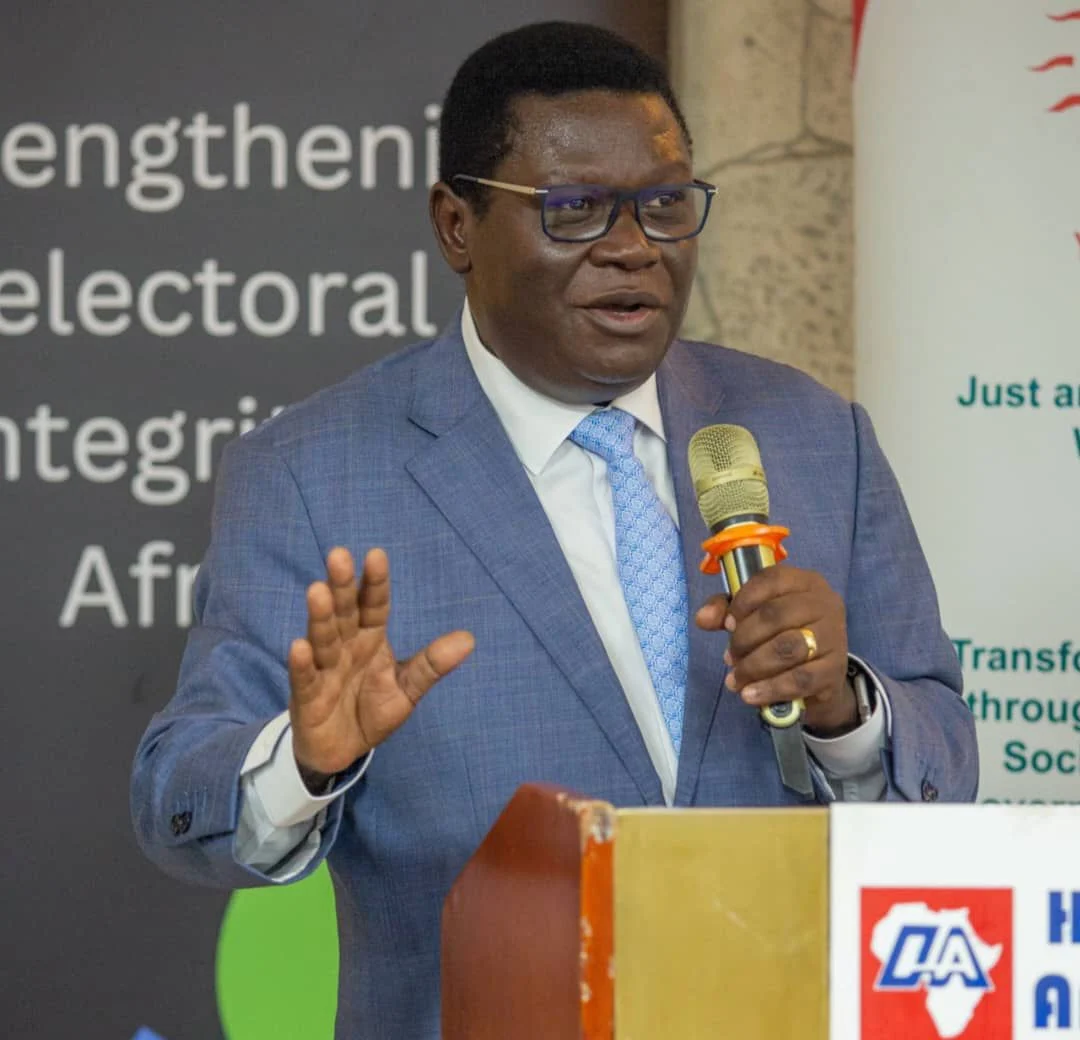Mao: Police Should Regulate Not Ban Political Gatherings

Justice and Constitutional Affairs minister Norbert Mao has cautioned against the continued suppression of political gatherings, warning that such actions risk derailing Uganda’s democratic trajectory as the country heads toward the 2026 general elections.
Speaking at a multi-stakeholder dialogue organised by the Centre for Constitutional Governance (CCG), Mao urged the Uganda Police Force to regulate, rather than ban, public assemblies.
He emphasized the need for a clearer legal framework under the Public Order Management Act (POMA) to ensure fair and consistent application of the law.
“For years, the opposition has accused the police of using POMA to stifle mobilization and restrict freedom of expression,” Mao said.
“If you cannot hold rallies or mobilize, then obviously the politics will be lopsided.”
Mao revealed that a new Statutory Instrument under POMA has been drafted and submitted to President Yoweri Museveni for review.
The regulation aims to limit discretionary power and clearly define how police should manage public gatherings without infringing on constitutional rights.
“In the absence of clear regulations, the police operate with wide discretion, which can sometimes be abused,” he said.
“We have proposed that police should regulate—not stop—public gatherings.”
Mao underscored that peaceful assembly must not be conflated with subversion and is, in fact, a fundamental democratic right.
He also assured that government reforms are being introduced to boost electoral transparency, including a budget increase for the Electoral Commission to acquire new, purpose-built biometric voter verification machines.
“These will not be recycled machines. They are specifically built for the Electoral Commission,” he noted, addressing public distrust over malfunctioning equipment used in previous elections.
Additionally, Mao announced that legal safeguards are being tightened to curb electoral fraud. Under the proposed reforms, it will be a criminal offense for presiding officers to declare results that do not match physical ballot box contents.
“It will be an offense for a presiding officer to present results where the ballot box content does not match the digital tally,” Mao stated, calling on citizens to demand transparency from electoral bodies and authorities.
Rights Commission Warns Against Militarisation
Uganda Human Rights Commission (UHRC) Chairperson Mariam Wangadya echoed Mao’s concerns, warning of rising militarisation in electoral processes.
Citing the violence that marred the recent Kawe North by-election, Wangadya said it should serve as a wake-up call.
“Elections should be a tool for accountability and change, not violence,” Wangadya said. “They offer citizens the chance to assess their leaders and either renew or withdraw their mandate.”
She criticized the increasing role of the army in electoral affairs, insisting that maintaining public order during elections is primarily a police function.
“The army should only be a last resort. Crowd control and election security are police responsibilities,” she stressed, urging all stakeholders to respect human rights and uphold the rule of law.
Wangadya also called on Ugandans to take an active role in the 2026 electoral process, either as voters or candidates, and reminded them that rights come with responsibilities.
Using Australia as an example, where voting is compulsory, she urged citizens to claim ownership of the democratic space.
“Let us approach the 2026 elections with peace and responsibility,” she concluded.
The dialogue brought together civil society actors, legal experts, politicians, and electoral stakeholders to assess Uganda’s readiness for a peaceful and credible election.



0 Comments